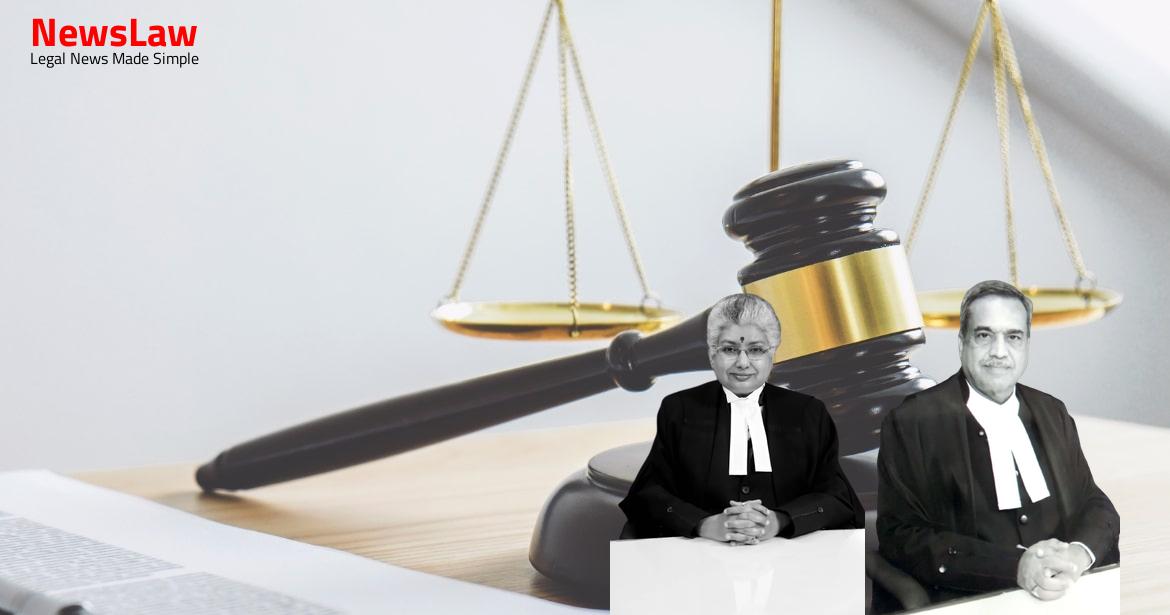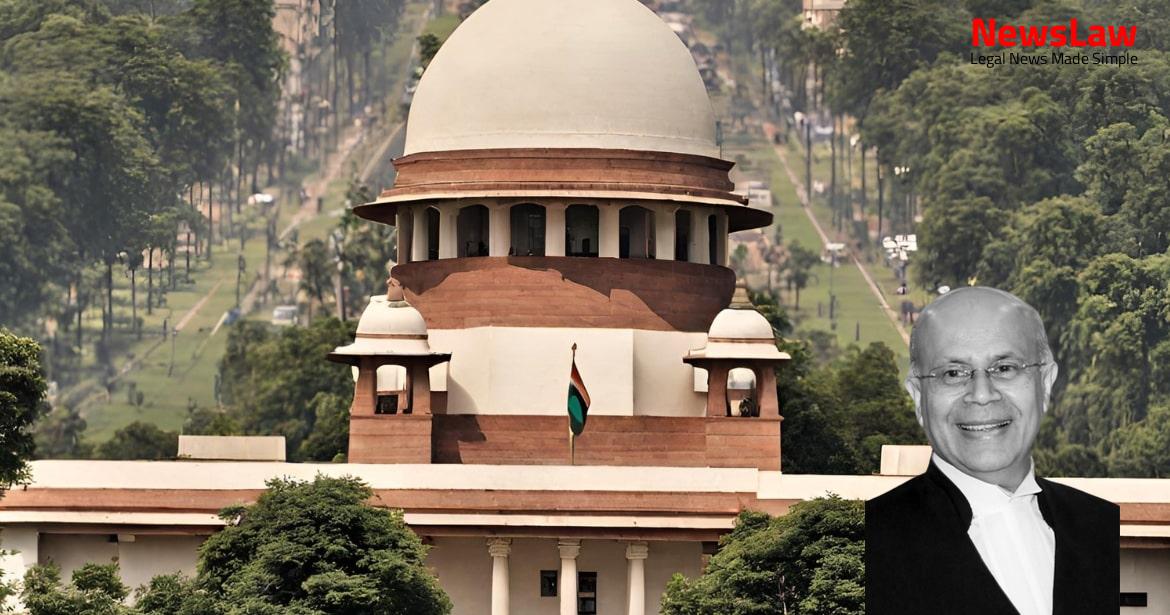In a recent legal case concerning the appointment of Urdu Lecturers, the Court’s analysis delves into the intricacies of the selection process, authority to direct appointments, and the validity of decisions made. This blog post will explore the key legal aspects highlighted in the court’s decision.
Facts
- An advertisement was published on 26.8.2007 for filling up posts of Urdu Lecturers in the College.
- Original writ petitioner applied for the Urdu Teacher post.
- Applicant was appointed on 1.7.2002.
- Management was questioned for appointing without seeking opinion of a subject expert.
- Appellant appealed the judgment quashing his appointment.
- Commissioner of Collegiate Education approved appellant’s appointment in January 2010.
- Interviews for different posts were conducted on 23.10.2007.
- Management decided to appoint a knowledgeable expert for Urdu subject and postponed the appointment.
- Management informed original writ petitioner in 13.3.2009 about appellant’s appointment as Urdu Lecturer.
- Original writ petitioner filed a writ petition feeling aggrieved.
- The original respondent No 10, who is now the appellant, had their appointment as an Urdu Lecturer quashed by the Single Judge.
- The management was directed to forward documents and proposals for the appointment of the original writ petitioner as a full-time Urdu Lecturer.
- The appellant appealed the Single Judge’s decision, which was dismissed by the Division Bench of the High Court.
- The Division Bench confirmed the Single Judge’s decision to quash the appellant’s appointment.
Also Read: Ruling on Circumstantial Evidence in Murder Case
Issue
- The Court passed an order limiting the notice to the question of whether the High Court, in a writ petition, could direct the appointment of respondent No.10 after holding the appellant’s appointment as invalid.
- The key issue for consideration is whether the High Court had the authority to direct the appointment of respondent No.10 despite not being recommended by the Committee or approved by the competent authority for the selection.
- The order issued by the High Court raised the question of the validity of the direction for the appointment of respondent No.10 as per the 2007 recruitment process.
Also Read: Challenging Legal Presumptions in Negotiable Instrument Cases
Arguments
- Respondent No.10 – original writ petitioner is better qualified than the appellant as he has passed both NET and SLET exams, scored 65% in regular M.A., and completed a Ph.D. in Urdu in February 2021.
- The original writ petitioner has twenty-five years of experience in teaching post-graduate students, while the appellant has no such experience.
- The learned Single Judge rightly directed to forward necessary documents for appointing the original writ petitioner as a full-time Lecturer in Urdu subject.
Also Read: Legal Analysis Critique in High Court’s Quashing Order
Analysis
- The entire selection process was found to be vitiated by fraud, collusion, and manipulation.
- The original writ petitioner is seeking appointment based on a fraudulent selection process.
- The direction to forward documents for the original writ petitioner’s appointment was not interfered with.
- The appointment of the appellant was rightly quashed and set aside by the learned Single Judge.
- The quashing of the appellant’s appointment was confirmed by the Division Bench.
- The selection process was found to be fraudulent with manipulation and no valid resolution for the appellant’s appointment.
- The appellant’s case for appointment is unsustainable given the fraudulent selection process.
- The Division Bench rightly confirmed the quashing of the appellant’s appointment.
Decision
- The appointment of the appellant as Urdu Lecturer is confirmed.
- The direction to forward necessary documents for the appointment of the original writ petitioner is quashed and set aside.
- A fresh selection process for the post of Urdu Lecturer is to be initiated within three months.
- The process will be monitored by respondent No.2 – Commissioner of Collegiate Education.
- The present appeal is partly allowed.
Case Title: RESHMA SULTANA Vs. THE STATE OF KARNATAKA (2022 INSC 548)
Case Number: C.A. No.-003484-003484 / 2022



